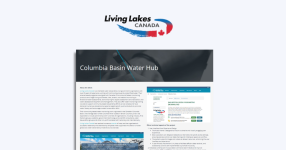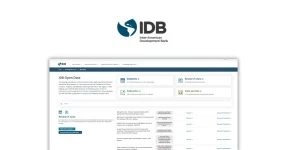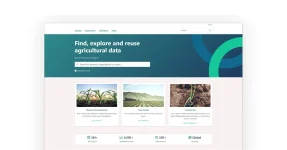Governments at all levels are increasingly adopting open source software as a solution to their data management challenges. The following post will look at the data management challenges facing governments and explore the key reasons why open source technology is best placed to meet them.
The challenges for government from increased data
Much has been made of how changes in the data and digital space have transformed the business of government. The increasing collection of data and its use in better informing policy development and service provision, as well as growing expectation on the part of many citizens to access services digitally, all pre-date the COVID 19 pandemic. But the pandemic and the global response to it turbo charged the pace of both the digitisation of government services and their collection and use of data.
And as the amount of data governments collect has increased, so too have the challenges of effectively managing it across its life cycle. The sheer mass of data now available to governments can make it complex and time consuming for public servants to find the right data for their project or research, ascertain its quality, and identify its custodian. There is also a plethora of risks for governments related to sharing data effectively and securely.
Governments are increasingly pursuing two interconnected agendas in the data and digital space: making data open in the interests of promoting transparency and a more informed public, while assisting data custodians to more efficiently and securely store, catalogue and share data internally. The main response to the first challenge has been the uptake of open data portals; front-line interfaces that bridge data providers and users, helping to ensure that data is not just accessible but usable. The second challenge has seen the adoption of internal data management platforms designed to efficiently and securely gather and store an organisation’s data assets in one central on-line location. Through a web interface, it can then enable these assets to be managed and shared, with both internal users and external collaborators and agencies, in a highly controlled environment.
The growing role of open source technology
Open source technology – software for which the underlying code and features are publicly available and free to use, including modifying and distributing it – has been central in the uptake of open data portals and internal data management platforms. Open source contrasts with proprietary software, the source code for which is private, a license for which must be purchased, and that can only be modified by its author, most often a private company.
CKAN, the Comprehensive Knowledge Archive Network, is a key open source software increasingly used by governments to power external and internal data management. CKAN can be configured and set up to function as an open data platform or internal data management system once it is deployed and hosted on a web server and is widely adopted by governments across the world, including data.gov, the United States open data portal, and the open data portals of the Canadian Government and the European Union.
Another important piece of open source software is Drupal, an open source content management system used to build websites and author content, which has a growing number of global users. While the adoption of open source software by governments dates to the early 2000s, it was given a major boost during the presidency of Barack Obama, when the Whitehouse website used Drupal and released its code, a development that played a major role in mainstreaming the transformation of government as a user of open source technology. European Union member states at the national, state and local level have also spearheaded the uptake of open source software over the last decade.
The benefits of open source
For over a decade Link Digital has positioned itself as a supplier of open source data and digital services, with a particular focus on using CKAN to enable governments to improve their external and internal data management capabilities. And we believe open source technology is particularly suited to the complex and growing challenges facing the public sector at all levels.
Here are our six essential takeaways for why this technology is superior to proprietorial solutions in data management for governments.
No Vendor lock in
At its most basic level proprietary software solutions lead to vendor lock-in. This is when users become dependent on a specific vendor for updates, support and maintenance, and compatibility with other software and, and cannot easily switch to another vendor. This makes it challenging for users to customise or switch to an alternative solution without incurring major costs. Open source solutions such as CKAN eliminate this risk because users have the complete freedom to modify, upgrade or tailor solutions without incurring substantial financial outlays.
Lower cost
Open source software is not just cheaper than proprietary software because it is free to use and eliminates the need to pay licencing fees. It offers additional cost saving through its greater interoperability, easier integration and customisation, and reduced barriers to reuse. The lower cost can make it particularly suitable for governments operating with limited resources.
This is not to say that open source solutions such as CKAN come with no cost. As the American think tank New America put it in a 2020 report, ‘There are other types of cost considerations to make, such as server infrastructure or technical talent to modify the source code and paid support options. Still, these costs are often much less than the typical license fees associated with proprietary software. In addition, most of these costs are a constant regardless of whether you are using open source tools, building your own software, or using proprietary solutions.’
Easier customisation and greater flexibility
Data management platforms powered by proprietary software are closed systems, and users are dependent on the provider for the tools necessary to customise their system. This can make it a complex, time consuming and expensive process to modify proprietary software to suit a government department’s needs or integrate applications seamlessly with their existing data systems
Tools such as CKAN and Drupal can be deployed to help engineer a completely new data management solution or to migrate data from an existing legacy system based on proprietary software to open source. CKAN can also be updated and customised to meet a user’s unique and changing data needs, including scaling operations up, or aligning with the needs of changing government laws and regulations, without waiting for the vendor updates or action. This is due to a wide variety of extensions that can greatly increase CKAN’s basic functionality.
Increased control
Government data management platforms based on open source software allow data custodians to more easily see what data is being stored in their system and manage the lifecycle of their data assets across multiple departments, organisational branches, and internal and external data users, in a highly secure, controlled access environment. Not hosting important data assets on a proprietary vendor’s service gives the user greater data sovereignty, as well as the ability to set their preferred standards of security and keep complete control of their data and metadata.
Security and support
Open source software can be made highly secure. While the security of CKAN applications can be user hosted, security updates and best practices are driven by the CKAN community. In addition to a core development team that contributes to keeping the CKAN software in good shape, it is supported by a large and expanding user base. This means CKAN is on a continuous improvement journey, with each successive version of the software looking at improving its efficiency, performance, stability, interaction, and usability. This community also provides support, advice and resources to in-house developers, and oversees the regular release of security patches and updates to address vulnerabilities and improve overall security.
Closed source code lacks this third party review by a large group of people who constantly eyeball the code for vulnerabilities. This can allow vulnerabilities to exist and remain undiagnosed and dealt with. The security of data management platforms powered by CKAN can be further enhanced by proper configuration and adherence to best practice security protocols and access controls within the host organisation, as well as by engaging a third-party service provider, such as Link Digital.
Innovation
Link Digital believes open source technologies are particularly suited to the data management needs of governments. The open nature of the software means it is more publicly accessible, which can enhance trust in government operations. Its flexibility and easy to customise features encourage innovative thinking. It also offers the potential to leverage collaboration between government and the broader digital ecosystem, for example, between public servants and the open source community around CKAN. This can not only expose governments to a wider base of IT talent, but to new skills and ways of working, with flow on impacts in terms of improved data management and data informed decision making skills for the public service.
—-
Get in touch
Link Digital has over a decade of experience providing organisations with customised internal data management solutions powered by CKAN. We can tailor an innovative, cost-effective solution to the internal challenges of better managing and sharing your data. If you are interested in hearing more, please get in contact and tell us about your project, and one of our data experts will be in touch.





